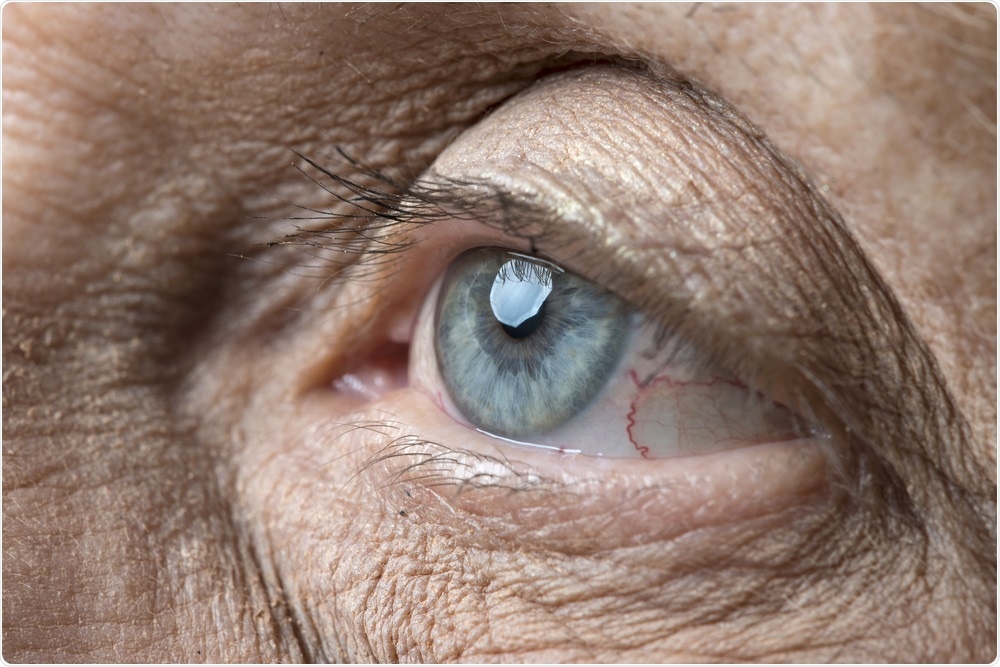Researchers at Boston Medical Center have found that low eye-fluid levels of two proteins associated with Alzheimer’s could serve as a potential predictor of the disease.

Shutterstock | Kuttelvaserova Stuchelova
The study showed that low levels of amyloid-β and tau proteins in the eye was significantly associated with poor cognitive scores.
Alzheimer’s disease is characterized by abnormal levels of amyloid- β and tau, with amyloid proteins forming deposits in the brain many years before symptoms arise. Diagnosing and treating Alzheimer’s disease in the early stages, before symptoms present, significantly improves the chances of therapy being effective.
The study, which is the first to link ocular levels of the biomarkers with mental status, suggests that an eye test for the proteins could be a cost-effective, convenient way of predicting future Alzheimer’s risk.
Studies have already shown that low levels of amyloid-β and tau in the cerebrospinal fluid (CSF) is associated with preclinical disease - where the pathological brain changes have started, but clinical symptoms have not yet developed. However, the lumbar puncture or “spinal tap” procedure that is used to obtain CSF is expensive and often inconvenient for patients to undergo.
Now, ophthalmologist Lauren Wright and colleagues have tested eye fluid extracted from 80 patients who had previously undergone eye surgery. After determining the level of amyloid-β and tau in the samples, the team found that lower levels of the biomarkers were associated with lower scores on a baseline cognitive test the patients had taken.
Furthermore, the cognitive test scores showed that some of the participants with low levels of the proteins already showed signs of mild-to-moderate dementia.
"These findings could help us build an accessible, and minimally invasive test to determine Alzheimer's disease risk, especially among patients with eye disease," says Wright.
The findings support previous research indicating that patients with eye disease may be at risk for Alzheimer’s disease. They also suggest that further studies of these patients may generate results that can be applied to the broader population.
Senior author Manju Subramanian says the research represents a great step in establishing the important role the eye could in play diagnosing preclinical Alzheimer’s.
“Further study is needed comparing protein biomarkers in the eye with more in-depth neurological testing," he concludes.